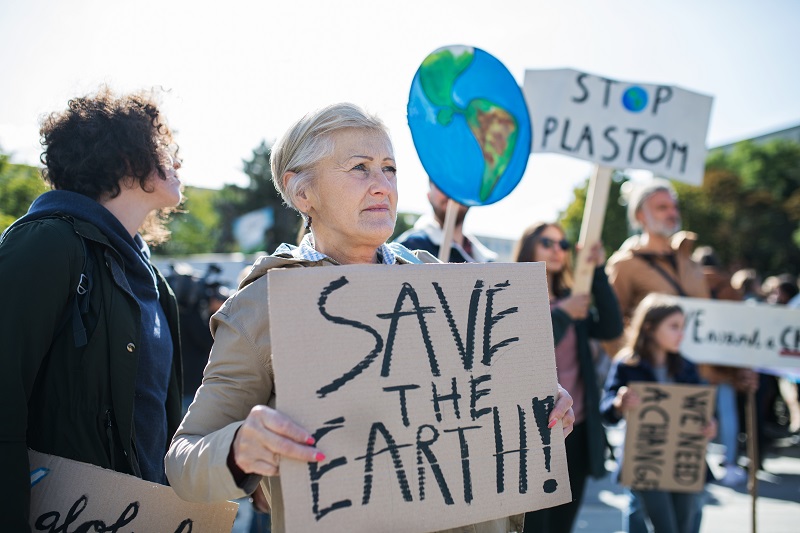
The terms sound similar, but they are not synonymous.
I think everyone’s already familiar with “global warming” and “climate change,” whether you are a casual news reader or a scientist. However, many people don’t know the exact difference between them and use the terms as they were synonyms, but they’re not. Thankfully, climate experts are here to set the record straight. Read on to find out the difference between “global warming” and “climate change,” as well as few crazy ideas that might just save the planet.
What is global warming?
According to Lauren Olson, zero waste manager at World Centric, an advocate for regenerative ecosystems, global warming refers to the long-term trend of rising temperatures in the Earth’s atmosphere and oceans.
This phenomenon called global warming occurs when greenhouse gases become trapped in the atmosphere, which causes the planet to warm. The term “global warming” became popular only after 1975 when an American geochemist called Wallace Broecker published a groundbreaking paper explaining that human activity was increasing greenhouse gas levels and raising temperatures worldwide at a surprising rate.
Additionally, according to the National Aeronautics and Space Administration (NASA) since 1880, the Earth’s average surface temperature has risen about 2°F (or 1°C).
What is climate change?
Now that we have explained what global warming is, let’s take a moment to talk about climate change. According to Olson, climate change “covers a broad range of environmental and human-caused factors that are affecting the planet.”
Even though climate change has taken place naturally for hundreds of years, now the climate is being highly affected by human activities, a direction that has hastened since the Industrial Revolution.
According to Olson, “The rapid increase in consumption brought on by human population growth has led to more human-made pollution that is modifying the global ecosystem in significant ways.”
Human pollution causes oceans to warm, glaciers to shrink, and sea levels to rise. Moreover, scientists expect to see more extreme weather patterns like floods, storms, and droughts as a result of climate change.
What’s the difference?
Global warming specifically refers to the warming of the planet due to increased greenhouse gas emissions, while climate change embraces the full range of changes caused by human activity, including global warming as well as rising sea levels, melting glaciers, and more.
Additionally, “climate change is explained by the effects of global warming,” Olson explains.
What you should remember
Even if the confusion between these two terms, “climate change” and “global warming” indeed exists, that does not mean they aren’t happening. Nevertheless, both climate change and global warming “will have a significant toll on the environment or create untold human suffering if nothing is done now,” Olson adds.
Excessive human consumption has made livestock populations increasing drastically, fossil fuel burning, tree loss, air travel, carbon dioxide (CO2) emissions, and more. All of these factors speed up the effects of both climate change and global warming. Sadly, the United States is one of the biggest climate change culprits.
How can we help
A significant change in our lifestyles is really needed right now, considering that experts warn that the dangerous trends related to global warming and climate change will only get worse and worse as time passes.
“Because the climate is changing rapidly, we need to work fast to help ecosystems adapt and drastically reduce greenhouse gas emissions,” Olson says.
Here’s how you can do your part: Avoid contributing to landfills, which is one of the biggest sources of global warming, according to Olson. He also suggests using compostable foodservice ware when you order takeout or bring your lunch to work.












































